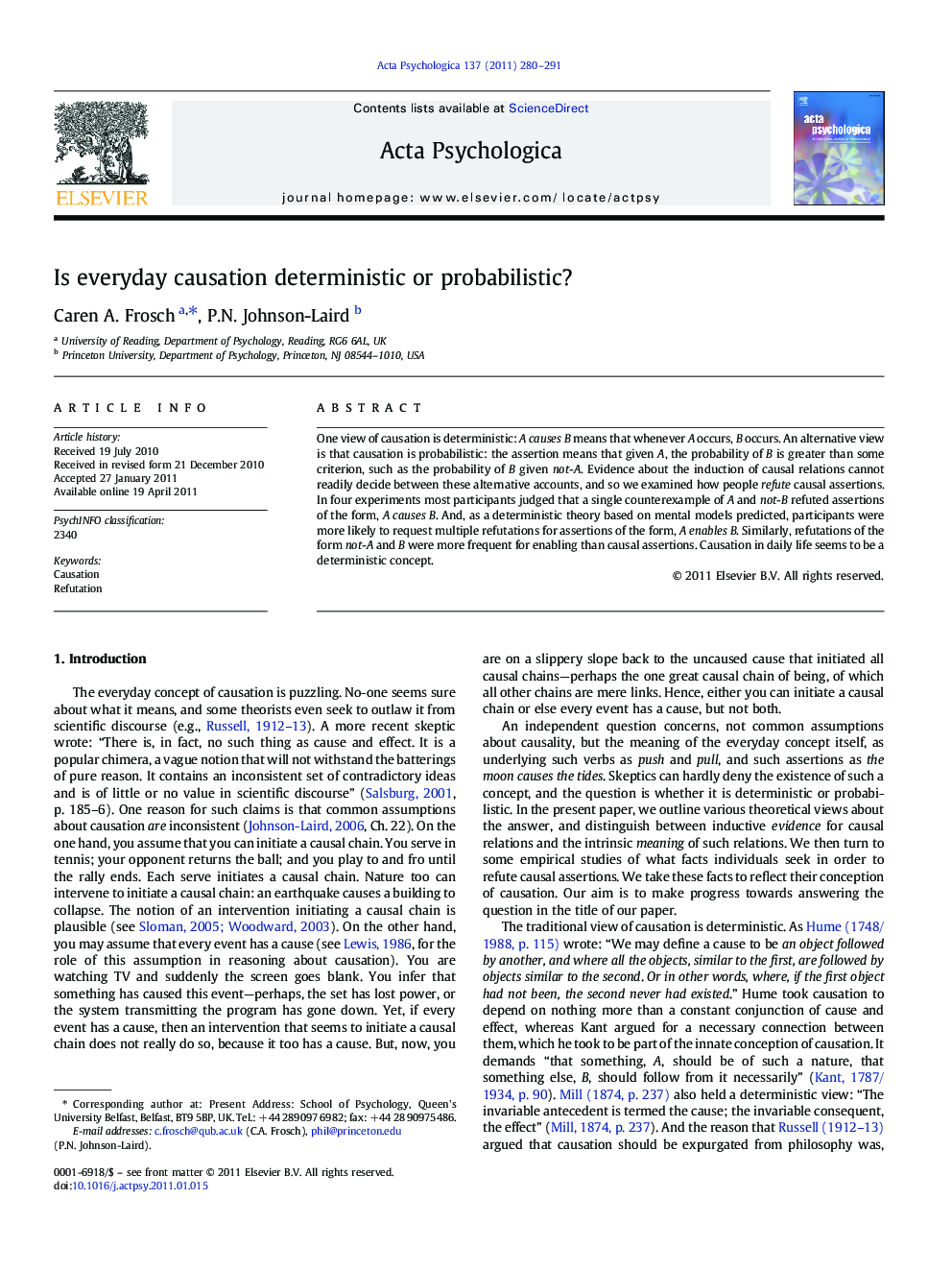| کد مقاله | کد نشریه | سال انتشار | مقاله انگلیسی | نسخه تمام متن |
|---|---|---|---|---|
| 920028 | 920260 | 2011 | 12 صفحه PDF | دانلود رایگان |

One view of causation is deterministic: A causes B means that whenever A occurs, B occurs. An alternative view is that causation is probabilistic: the assertion means that given A, the probability of B is greater than some criterion, such as the probability of B given not-A. Evidence about the induction of causal relations cannot readily decide between these alternative accounts, and so we examined how people refute causal assertions. In four experiments most participants judged that a single counterexample of A and not-B refuted assertions of the form, A causes B. And, as a deterministic theory based on mental models predicted, participants were more likely to request multiple refutations for assertions of the form, A enables B. Similarly, refutations of the form not-A and B were more frequent for enabling than causal assertions. Causation in daily life seems to be a deterministic concept.
Research Highlights
► Refutations of causal claims suggest that everyday causation is deterministic.
► All causal claims were most frequently refuted by a single counterexample.
► More multiple counterexamples requested for enables than for causes.
► Causes, enables and prevents statements are refuted by different evidence.
Journal: Acta Psychologica - Volume 137, Issue 3, July 2011, Pages 280–291